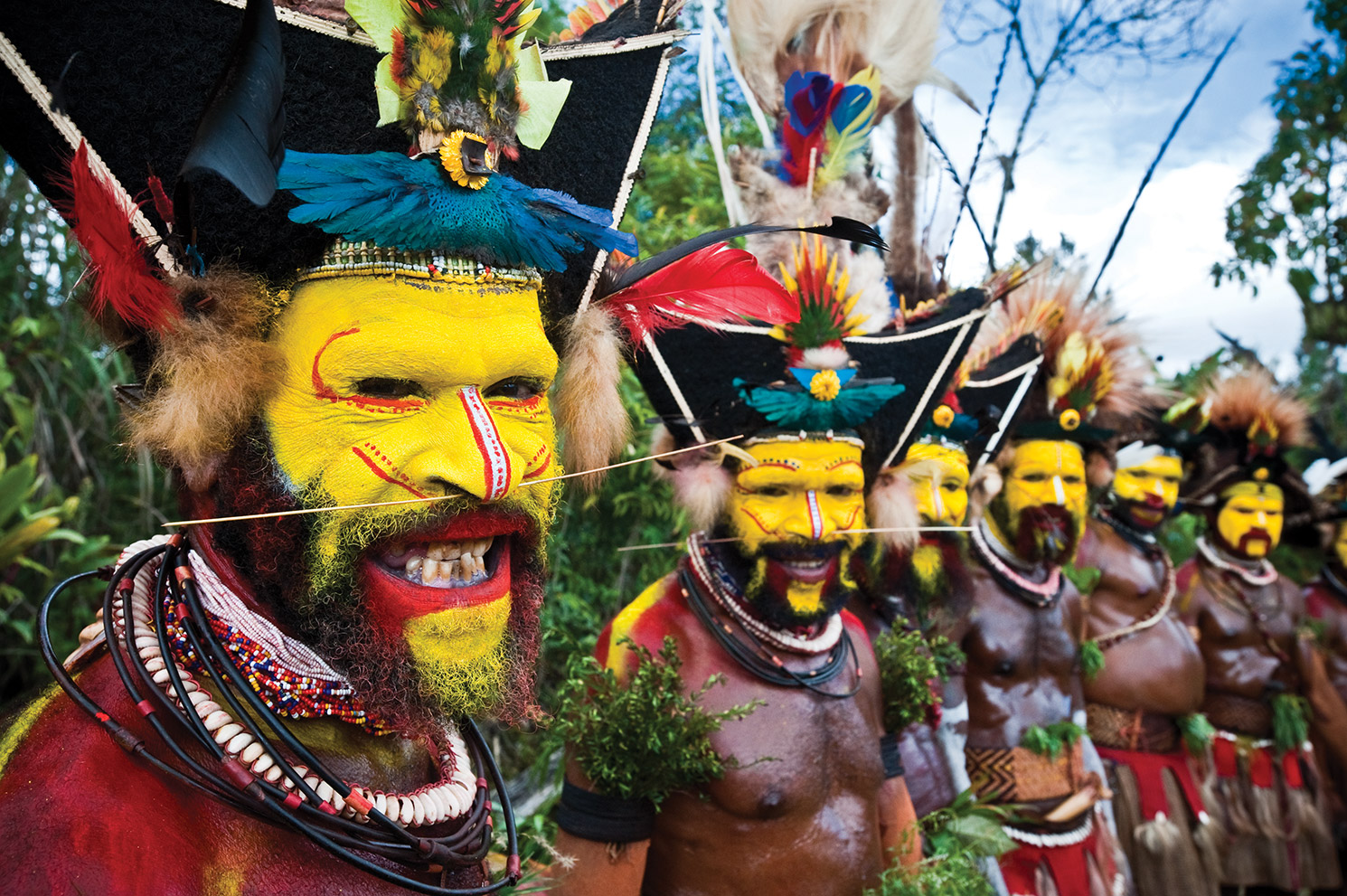Local Customs and Etiquette
Understanding and respecting local customs and etiquette is key to having a meaningful and positive travel experience. Papua New Guinea is a country rich in cultural diversity, with over 800 distinct languages and numerous traditional customs. Whether you’re visiting a remote village or exploring urban areas, it’s important to be mindful of the local ways of life. This guide provides you with essential tips on how to navigate cultural interactions respectfully and appropriately.
1. Respect for Elders and Authority
In Papua New Guinean culture, respect for elders and authority figures is paramount. Always greet elders first and use respectful language when addressing them. It’s customary to listen attentively when an elder or community leader is speaking, and interrupting or contradicting them is considered disrespectful.
2. Greetings and Interactions
Greetings in Papua New Guinea can vary depending on the region and the community you are visiting. A common and respectful way to greet someone is with a handshake, accompanied by a warm smile. In some areas, people may greet each other with a slight bow or by touching foreheads. It’s always best to observe the locals and follow their lead.
- Handshakes: A firm but gentle handshake is widely accepted, especially in formal settings. In rural areas, a softer handshake might be more appropriate.
- Eye Contact: Maintain respectful eye contact during conversations, but be aware that prolonged eye contact might be considered rude in some contexts.

3. Dress Code
Dressing appropriately is an important aspect of showing respect in Papua New Guinea. The dress code can vary depending on the region, but modesty is generally appreciated across the country.
- Urban Areas: In cities like Port Moresby, casual western attire is acceptable, but it’s advisable to avoid wearing overly revealing clothing.
- Rural Areas: In more traditional or remote areas, women should wear long skirts or dresses, and men should avoid shorts. Covering shoulders and avoiding tight-fitting clothes is also recommended.
- Visiting Villages: When visiting a village, it’s respectful to ask about appropriate dress codes before your visit. Some communities may have specific customs regarding attire.
4. Gift Giving
Gift-giving is an integral part of social interactions in Papua New Guinea, particularly in rural areas. If you are visiting a village or staying with a local family, bringing a small gift as a token of appreciation is a thoughtful gesture.
- What to Give: Suitable gifts include food items like rice, sugar, or tea, as well as practical items like soap, matches, or fabric. It’s advisable to avoid giving cash unless it’s part of a formal exchange or ceremony.
- How to Present: Gifts are usually presented with both hands as a sign of respect. It’s also customary to offer a brief explanation of the gift’s significance if it’s not a common item.
5. Photography
Taking photographs is a great way to capture your experiences in Papua New Guinea, but it’s important to do so respectfully.
- Ask Permission: Always ask for permission before taking photos of people, particularly in rural areas or during cultural ceremonies. Some communities may have restrictions on photography, especially regarding sacred sites or traditional activities.
- Be Discreet: Even with permission, it’s polite to be discreet when taking photos. Avoid interrupting ceremonies or drawing too much attention with your camera.

6. Visiting Sacred Sites
Papua New Guinea is home to many sacred sites that hold significant cultural and spiritual value. When visiting these sites, it’s crucial to show the utmost respect.
- Follow Local Guidance: Always follow the instructions of local guides or community leaders when visiting sacred sites. They will provide information on any specific customs or taboos that must be observed.
- Do Not Disturb: Avoid touching or removing objects from sacred sites, and refrain from loud conversations or disruptive behavior.
7. Eating and Drinking Etiquette
Food plays an important role in social gatherings in Papua New Guinea. Understanding the local dining etiquette will help you navigate these occasions with respect.
- Communal Meals: Meals are often communal, and it’s polite to wait until everyone has been served before eating. Sharing food is common, and you may be invited to try different dishes.
- Use of Hands: In some areas, it’s customary to eat with your hands. If you’re unsure, observe others or ask your host about the appropriate method.
- Alcohol: Alcohol is not commonly consumed in many traditional communities. If you are offered alcohol, it’s polite to accept or decline graciously, depending on your comfort level and the setting.
Respecting local customs and etiquette in Papua New Guinea will enrich your travel experience and help you build positive relationships with the people you meet. By being mindful of these cultural norms, you’ll not only avoid misunderstandings but also show your appreciation for the rich and diverse cultures of this beautiful country.